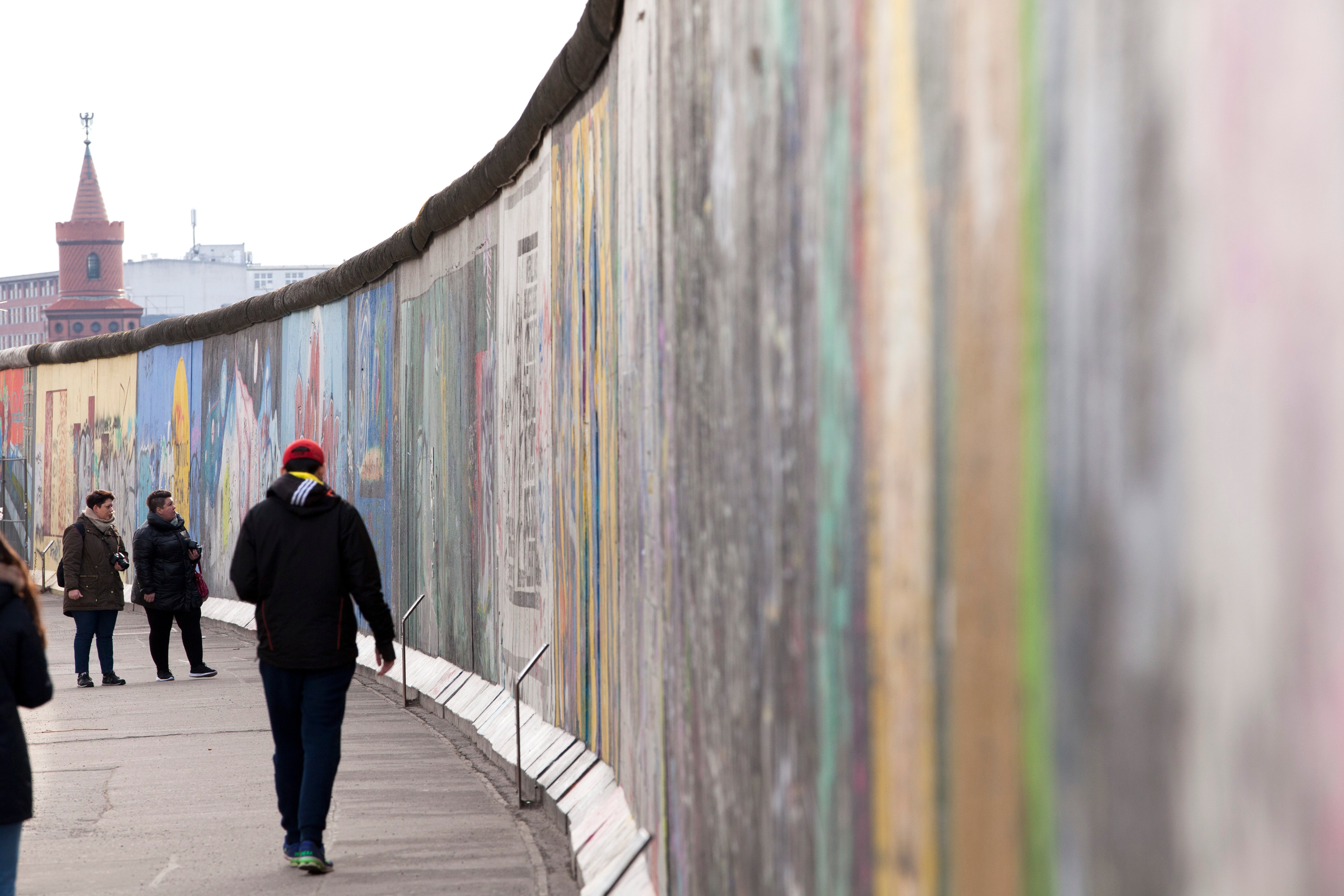
Souvenir-seeking tourists have done serious damage to the Berlin Wall, leaving Germany with no choice: A wall in front of the wall will be erected in summer 2018, to protect the landmark structure from further vandalism, reports the Art Newspaper.
This isn’t the first time the idea of a protective barrier in front of the Berlin Wall has been raised. In November 2015, authorities of Berlin’s Friedrichshain-Kreuzberg district, home to the “East Side Gallery” section of the wall, which is covered in murals created in 1990, announced plans to erect a permanent protective fence.
The wall, a designated heritage site, was erected in 1961, dividing citizens of West Berlin from the rest of the city and the surrounding East Germany until November 9, 1989. The wall began coming down in June 1990, but parts of the structure were left intact as a monument.
Fragments of the Berlin Wall for sale in 1991. Courtesy of Ken Schwarz, via Flickr Creative Commons.
That physical reminder of the Cold War, however, has become endangered by throngs of tourists—3.5 million of them reportedly visit the East Side Gallery a year, and some engage in graffiti, scrawling their own names and messages atop the historic artworks.
Others feel compelled to bring home a piece of the wall to call their own. But everyone that chisels off a tiny fragment of the wall is literally chipping away at world history, leading some authorities to worry that the wall will not survive without additional protection.
Detail of Kani Alavi’s mural on the Berlin Wall’s East Side Gallery. Courtesy Melanie Stetson Freeman/The Christian Science Monitor via Getty Images.
“We have had several people arrested and taken to court, and we want to avoid this,” Kani Alavi, an artist whose work is on the wall, and a leading advocate for its preservation as the president of the Artists’ Initiative East Side Gallery, told TAN. “We have tried to protect it using a construction hoarding but that means you can’t see the art.”
Alavi led a massive €2 million ($2.1 million) renovation of the East Side Gallery in 2009, gathering the original artists to have the artworks repainted. It was cleaned and repaired again in 2015.
The Friedrichshain-Kreuzberg district is planning for a roughly three-foot-high railing, about 33 inches away from the wall. There will also be signs in multiple languages prohibiting vandalism.